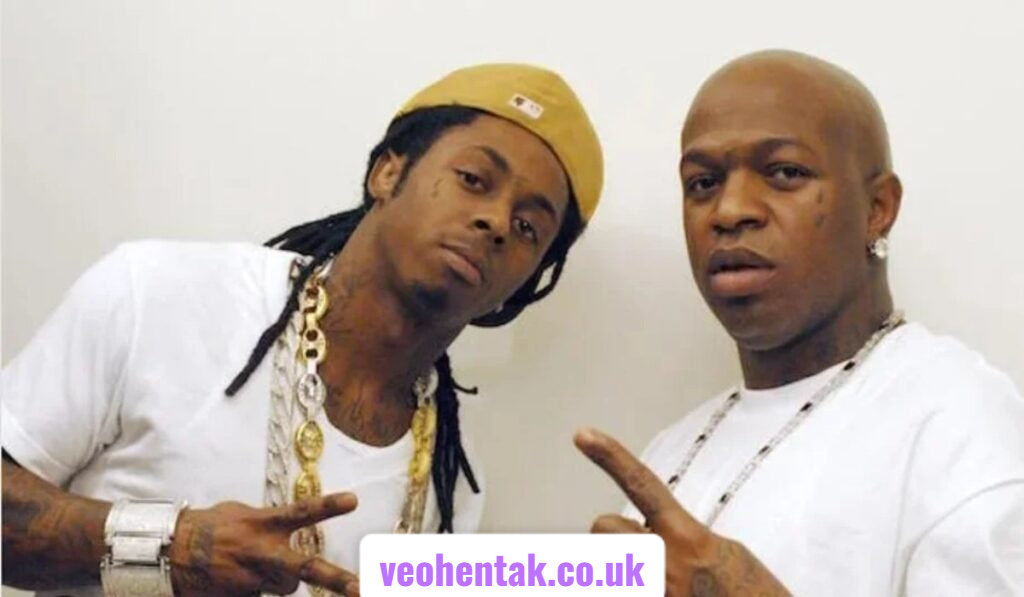Dwayne Michael Turner is primarily known for being the father of the globally recognized artist Lil Wayne, though his own life remains largely private. His influence is often discussed in the context of family history, early childhood experiences, and the emotional development of the rapper. While not a public figure, Turner’s absence and limited involvement became important themes reflected in Lil Wayne’s interviews, lyrics, and personal storytelling throughout his career.
This article explores the background, influence, and cultural relevance surrounding Dwayne Michael Turner, focusing on how his story fits into a broader narrative of family dynamics, personal identity, and artistic development. Although he does not hold a major public profile, his presence and absence shaped significant emotional themes in Lil Wayne’s life. The article examines historical context, family relationships, public perception, and long-term effects of fatherhood on creative expression. By understanding Turner’s role, readers gain insight into how early life experiences contribute to resilience, ambition, and the shaping of influential artists. Each section provides a clear, human-centered perspective supported by thoughtful analysis.
Early Life and Personal Background of Turner
The life of Dwayne Michael Turner remains mostly undocumented, which adds a layer of mystery to his identity. Despite limited information, his connection to Lil Wayne brings curiosity to his early environment and upbringing. Turner’s background reflects common narratives where personal details stay private but still influence public discussions. Understanding his roots helps highlight the cultural and social conditions of New Orleans during the period he became a father. These conditions shaped not just him, but also the landscape in which his son grew up and formed his earliest emotional experiences.
Quick Bio Table
| Field | Details |
| Full Name | Dwayne Michael Turner |
| Known For | Biological father of Lil Wayne |
| Date of Birth | Not publicly documented |
| Place of Birth | Believed to be New Orleans, Louisiana |
| Nationality | American |
| Public Status | Private individual, not a public figure |
| Relationship to Lil Wayne | Father; had limited involvement in his upbringing |
| Profession | Not publicly known |
| Public Appearance | Rare; mostly referenced through Lil Wayne’s interviews |
| Cultural Significance | Part of Lil Wayne’s emotional and family history |
| Residence | Not publicly documented |
| Media Presence | Very limited |
| Legacy Connection | Indirect influence through Lil Wayne’s life story |
Family Dynamics and Relationship with His Son
The relationship between Turner and his son has been described as distant, yet significantly impactful. Lil Wayne has openly expressed that Turner’s absence influenced him deeply, both emotionally and artistically. While Turner did not play a major active role in his upbringing, his presence as a biological father remained part of Wayne’s personal story. This dynamic demonstrates how emotional narratives can develop even when physical presence is limited. It also shows how children often internalize memories, expectations, and disappointments that later contribute to their creative expression and emotional maturity.
Cultural Context Surrounding New Orleans During His Early Years
To understand Turner’s life, one must consider the social and cultural atmosphere of New Orleans during his early adulthood. The city has long been a place of complex economic pressures, vibrant musical traditions, and tight-knit neighborhoods. Many young men of that era experienced hardships related to limited opportunities and community instability. These challenges often affected family structures, contributing to absent fathers and strained relationships. Turner’s story fits within this broader landscape, offering insight into systemic struggles that shaped many individuals during that time.
Also read this: Dress Up Games Online: Best Girl Games to Play Today
His Influence on Lil Wayne’s Identity Formation
Even though Turner was not closely present, his influence appeared in Lil Wayne’s internal world. For Wayne, the absence became a defining emotional factor. Many interviews show that this lack of parental connection shaped Wayne’s determination to succeed, as he focused on carving his own identity early in life. The desire to create a stronger life than the one he inherited became part of his motivation. Turner’s indirect influence therefore contributed to Wayne’s intensity, ambition, and personal resilience throughout his career.
Emotional and Psychological Impact of Parental Absence
Parental absence often shapes children in complex ways, and Turner’s limited involvement created emotional gaps that Wayne later described. The psychological effects include increased independence, early maturity, and occasional emotional detachment. These responses are common among children raised in similar circumstances. While Turner himself may not have intended such outcomes, the emotional landscape created by his absence became a recurring theme in Wayne’s reflections. Understanding these dynamics helps explain why some artists channel their unresolved experiences into creativity and raw storytelling.
Public Perception of Turner Through Lil Wayne’s Lens
Most public awareness of Turner comes from Lil Wayne’s statements rather than Turner’s own words. As a result, media narratives are shaped by a single perspective, often highlighting absence rather than presence. This limited viewpoint makes Turner’s identity somewhat one-dimensional in public discourse. People often evaluate him based on Wayne’s emotional expression instead of understanding him as an individual within his own context. This highlights how public figures’ relatives can become defined through indirect storytelling rather than their personal choices or complete histories.
Understanding Turner Beyond Public Narratives
To explore Turner more fairly, one must look beyond assumptions shaped by celebrity interviews. His life likely involved personal challenges, private struggles, and cultural pressures that remain unseen by the public eye. Many men of his generation faced similar issues, navigating environments with limited support systems. Viewing Turner as a human being, rather than simply a figure of absence, allows for a more empathetic perspective. This approach encourages readers to consider how personal stories are often incomplete, especially when they exist only through another person’s narrative.
How His Absence Shaped Lil Wayne’s Career Path
Turner’s absence inadvertently encouraged Wayne to bond deeply with father figures like Birdman, who later played a significant role in his rise. The lack of a biological father left room for mentors and industry figures to influence Wayne’s values, work ethic, and sense of belonging. This shift shaped both his personal identity and professional trajectory. By seeking validation through music and mentorship, Wayne built a career grounded in self-reliance and artistic drive, ultimately shaping him into one of the biggest names in hip-hop.
Media Interpretations and Cultural Interest in Turner
Media outlets often focus on Turner due to curiosity surrounding influential artists’ backgrounds. Yet the information shared is usually minimal, reinforcing his reputation as a private figure. Cultural fascination arises from understanding how early family structures impact successful individuals. Turner’s name occasionally appears in discussions about Lil Wayne’s childhood, but it rarely extends beyond that. Despite the limited details, the public remains interested in how his role—whether active or passive—contributed to Wayne’s long-term development and emotional storytelling.
Documented Appearances and Known Life Events
Public records reveal very little about Turner, making concrete details scarce. However, the small amount of known information contributes to his mystique. His life events largely remain out of the media, which demonstrates a desire for privacy. Many individuals connected to celebrities prefer to avoid public attention, especially when their stories are personal rather than professional. This lack of visibility reinforces the idea that not all influential figures live publicly, yet their impact continues to echo through the achievements of those connected to them.
Social Factors That Shape Fathers in Challenging Environments
To understand Turner’s journey, one must explore the societal pressures facing fathers in economically challenged communities. Factors such as limited employment, community violence, strained relationships, and generational patterns often contribute to inconsistent involvement in a child’s life. Turner’s story fits within these broader realities. Recognizing such patterns helps society better understand why many men face obstacles in sustaining stable family roles. This perspective also creates room for compassion, acknowledging the pressures that influence a person’s ability to fully participate in family life.
Bullet Summary of Known and Inferred Facts About Turner
Although information is limited, several essential points help clarify Turner’s place in Lil Wayne’s story:
- He is the biological father whose absence influenced Wayne’s emotional world.
- Public details about him remain extremely limited and mostly indirect.
- His life reflects broader social challenges within New Orleans communities.
- His indirect influence helped shape Wayne’s desire for independence and success.
How Turner Fits Into Lil Wayne’s Larger Origin Story
Turner is part of the foundational narrative that shaped Wayne’s beginning. Though his presence was small in Wayne’s life, he contributed to the environment that formed the artist’s earliest experiences. Origin stories often include complex family dynamics, emotional gaps, and the search for identity. Turner’s position plays a symbolic role in Wayne’s journey, emphasizing themes of resilience and self-made ambition. His name appears in discussions of Wayne’s past, connecting personal struggle with the larger evolution of a musical icon.
Bullet Outline of Turner’s Role in Cultural Discussions
Turner’s name often appears when discussing family patterns within rap culture:
- He is frequently referenced as an example of fatherhood complexities.
- His story is used to analyze generational challenges in urban environments.
- His role helps illustrate how absence can shape artistic expression.
- He symbolizes wider social themes rather than just personal identity.
Why Turner’s Story Still Matters Today
Despite limited information, Turner’s story continues to matter because it represents countless untold narratives of fathers whose roles become part of artistic legacies. His name is tied to emotional reflections that influence music, interviews, and public conversations surrounding Lil Wayne. Understanding his story also encourages discussions about how childhood experiences shape ambition, creativity, and resilience. Turner’s presence—direct or indirect—remains woven into a much larger narrative of struggle, identity, and the desire to build a better life than the one inherited.
The Lasting Legacy of Turner Through His Son’s Success
Although Turner does not appear in the public eye, his lasting legacy is carried forward through Lil Wayne’s achievements. Children often transform personal pain or absence into motivation, and Wayne exemplifies this journey. Turner’s indirect influence contributed to shaping a superstar who redefined modern hip-hop. His name therefore becomes part of the broader story behind a global icon. Through Wayne’s success, Turner holds a unique place in cultural history, reminding readers how personal stories echo across generations.
Conclusion
Dwayne Michael Turner remains a private and somewhat mysterious figure, yet his influence echoes through the narrative of Lil Wayne’s early life and artistic evolution. His absence shaped emotional themes, personal motivations, and the search for identity that helped define one of the greatest hip-hop artists of all time. Turner’s story reflects broader social realities and highlights how family dynamics, even when distant, contribute to shaping future legacies. Understanding his role offers a deeper perspective on resilience, generational impact, and the unseen influences behind public success.
FAQs
1. Who is Dwayne Michael Turner?
He is the biological father of Lil Wayne, known mostly through references in Wayne’s interviews and life story.
2. Is Turner a public figure?
No, he maintains a private life and rarely appears in media discussions directly.
3. How did he influence Lil Wayne?
His absence shaped Wayne’s emotional development, motivation, and reflections on fatherhood.
4. Why is he mentioned in hip-hop discussions?
He symbolizes fatherhood struggles and family dynamics often discussed in the rap community.
5. Is there detailed information about his life?
Very little is publicly documented, with most information coming indirectly through Wayne.
6. Did he participate in Wayne’s upbringing?
Not significantly; Wayne has stated he grew up mostly without him.
7. Why do people remain interested in him?
Because understanding figures connected to successful artists adds depth to their personal history.
Fore more info: veohentak.co.uk


